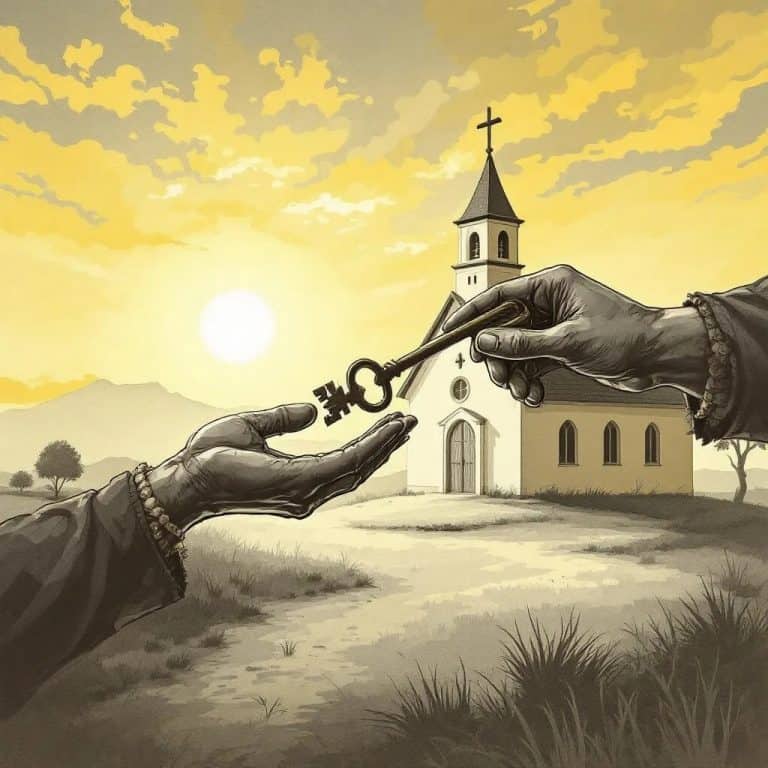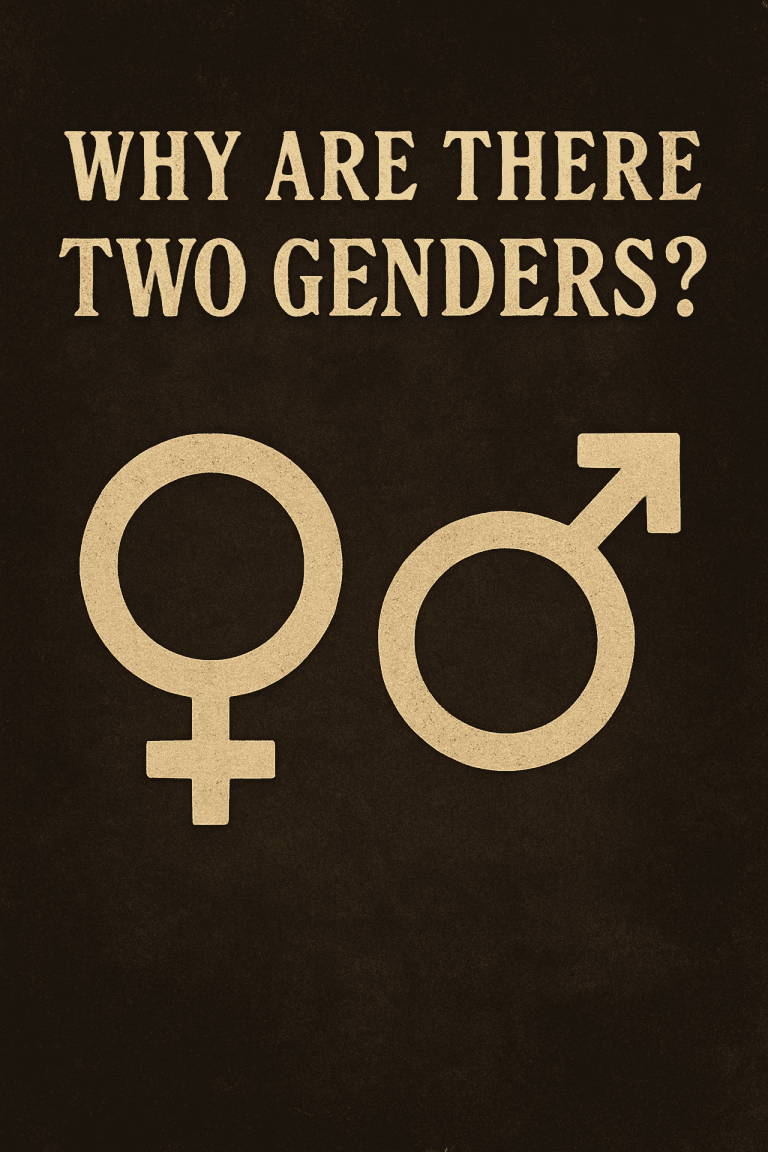What Did Jesus Say About Homosexuality? A Biblical Answer That Still Confronts Today
You’re not the first person to ask, what did Jesus say about homosexuality?
And you won’t be the last.
Some ask because they want to obey Him. Others ask because they hope He didn’t say anything at all. They think silence means permission, and omission means approval.

But Jesus does not adjust to the modern world. He is the same yesterday, today, and forever. And while He never used the word “homosexuality,” He said more than enough to make God’s design—and His call to holiness—abundantly clear.
This article does not twist Jesus into a mascot for modern sexual ethics. It takes Him at His word. And if you’re willing to listen, not just argue, then the Word made flesh will speak.
Because what did Jesus say about homosexuality is not a PR question. It’s a Lordship question.
Did Jesus Ever Mention Homosexuality?
Jesus never used the English word “homosexuality.” But neither did He use words like “pornography,” “heroin,” or “human trafficking.” That doesn’t mean He approved of them.
His silence on specific terms is not an excuse for rebellion. It’s a mirror exposing our hearts. If we only obey where Jesus is explicit, and only submit when He repeats Himself verbatim, then we’re not looking for truth—we’re looking for loopholes.
Jesus spoke within the Jewish moral world. And in that world, homosexual acts were not a debated issue. They were universally understood as violations of God’s created order. He didn’t need to relitigate what every synagogue already affirmed. But He did reaffirm the foundation behind it all.
“Have you not read that He who created them from the beginning made them male and female… Therefore a man shall leave his father and his mother and hold fast to his wife, and the two shall become one flesh?” (Matt. 19:4–5)
Jesus pointed to the beginning. To creation. To the union of one man and one woman as the pattern for sexual expression. Not just for Jews. Not just for His time. For all time.
Jesus Didn’t Redefine the Moral Law—He Fulfilled It
When Jesus said, “I did not come to abolish the Law or the Prophets, but to fulfill them” (Matt. 5:17), He affirmed the continuity of God’s moral will. That includes the sexual boundaries laid out in Leviticus and echoed by Paul.
The law was not a burden Jesus had to overthrow. It was a shadow of holiness He came to embody. He never loosened it. He lifted it higher.
“You have heard that it was said, ‘You shall not commit adultery.’ But I say to you, anyone who looks at a woman with lustful intent has already committed adultery with her in his heart.” (Matt. 5:27–28)
Jesus went deeper than behavior. He exposed desire.
So if you ask what did Jesus say about homosexuality, you also have to ask what He said about the heart—because that’s where all sin begins.
Sexual Sin in the Teaching of Jesus
Jesus regularly condemned “sexual immorality” (Greek: porneia)—a word that includes all sexual acts outside of the marriage covenant between a man and a woman. This includes adultery, fornication, incest, and homosexual practice.
“For out of the heart come evil thoughts, murder, adultery, sexual immorality… These are what defile a person” (Matt. 15:19–20).
Jesus never gave a sexual ethic that was open-ended. He didn’t give people the freedom to decide what “feels right.” He gave them a call to be holy.
And when He met sinners trapped in sexual sin—like the woman caught in adultery—He didn’t tell them to keep searching for their truth. He said, “Go, and sin no more” (John 8:11).
But If Jesus Was Silent, Doesn’t That Mean He Approved?
No. That logic is dangerous—and dishonest.
It’s called an argument from silence. And it’s the same method false teachers used in the early church. They redefined grace, minimized sin, and claimed Christ as their mascot while rejecting His Lordship.
Jesus didn’t address every specific evil because He came to fulfill the whole counsel of God—not rewrite it. And He entrusted His apostles to carry that message forward, writing under the inspiration of the Holy Spirit.
So when Paul wrote, “Men committed shameful acts with other men, and received in themselves the due penalty for their error” (Rom. 1:27), he wasn’t contradicting Jesus. He was echoing Him.
To say, “Jesus never mentioned homosexuality, so it must be okay” is like saying your doctor never warned you about drinking bleach, so bottoms up.

Silence is not affirmation. Especially when Jesus upheld the very law that calls such behavior sin.
What Did Jesus Say About Homosexuality? Enough to Confront Every Heart
Jesus never made homosexuality His primary focus. But neither did He treat it as a secondary issue. He addressed the root, not just the symptom.
And that root is rebellion.
Whether it expresses itself in greed, pride, heterosexual lust, or homosexual sin, the verdict is the same:
“Unless you repent, you will all likewise perish.” (Luke 13:3)
Jesus didn’t single out one kind of sinner. But He didn’t excuse any of them either. The ground at the foot of the cross is level. But it is not optional.
To the One Who Honestly Wants to Know
If you’ve asked, what did Jesus say about homosexuality, because you’re truly seeking—keep listening.
Jesus is not repelled by your questions. But He will not accept your conditions.
You cannot say, “Jesus, show me the truth,” while holding tightly to what you’ve already decided. He welcomes the humble. He resists the proud.
He calls every person to repentance—not because He is cruel, but because He is kind.
“Come to Me, all who are weary and heavy laden, and I will give you rest” (Matt. 11:28).
Rest comes after surrender. Not before.
To the One Who Wants Permission, Not Truth
Jesus doesn’t bow to culture. He confronts it.
You can rewrite His words. You can redefine His teachings. You can rebrand Him for the modern era. But in the end, the real Jesus will still stand.
And you will still answer to Him.
“This is the judgment: the light has come into the world, and people loved darkness rather than the light because their works were evil” (John 3:19).
He doesn’t call you to be “your authentic self.” He calls you to die to yourself.
The gospel is not self-affirmation. It is self-denial. It is death, burial, and resurrection with Christ.
Final Word: Jesus Calls All Sinners to Repentance
So what did Jesus say about homosexuality?
He said what He needed to say:
- That God created male and female.
- That marriage is between a man and a woman.
- That sexual sin defiles.
- That hearts must repent.
- That grace is real—but never cheap.
Jesus doesn’t whisper about sin. He confronts it. Not to shame, but to save.
And no matter what you’ve done—or what you’ve justified—He still calls.
“Seek the Lord while He may be found; call upon Him while He is near” (Isa. 55:6).
He will not be mocked. But He will be merciful.
Turn and live.
Would you like to know more about the grace of God in salvation? Check out this free resource.
Walt Roderick is a Christian writer who cares more about biblical clarity than online applause. He writes to strengthen believers and confront spiritual drift.






